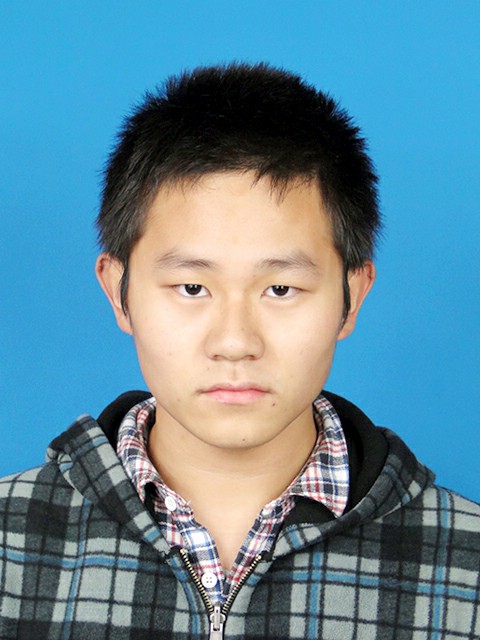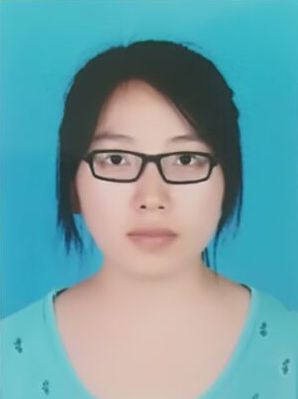BioMedical Big Data Mining Lab
武汉大学生物医学大数据挖掘实验室 - 中文
In recent years, advances in bioinformatics, medicine and high throughput sequencing techniques have generated a large number of drug biochemical data, pharmacokinetic data, phenotypic data and adverse reaction data. Based on multi-source heterogeneous data, our lab is aimed to mine relations between drugs, diseases, side effects and other relevant information.
Research topics:
- Multi-source data integration method, recommender system, missing link prediction in complex networks, semi-supervised learning, transfer learning;
- applications of computational methods to solve hot problems in fields of social network, biomedical data mining, such as drug side effect prediction, drug-target interaction prediction, drug-drug interaction prediction, drug-disease association prediction.

Wen Zhang, PH.D, Associate Professor
School of Computer, Wuhan University
Education:
Joint tranining Ph.D. of Wuhan University and National University of Singapore, Visiting scholar in University of Massachusetts Medical School.
Research Interests:
Machine learning, Recommended system, BioMedical big data mining
Professional Activities:
CAAI Division of Bioinformatics and Artificial Life Member, CCF Division of Bioinformatics Member, Committee Member of China Bioinfomatics Association, Technical Committee on Data Miming, Reviewer for a great number of reputated journals and International conferences, published more than 40 papers.
Team Members
- Last updated 2/21/2019
Publication
* represent corresponding author
-
1. Wen Zhang, Weitai Yang, XIaoting Lu, Feng Huang, Fei Luo. The Bi-direction Similarity Integration Method for Predicting Microbe-disease Associations. IEEE Access, IEEE Access, v 6, p 38052-38061, June 29, 2018
-
2. Wen Zhang, Xiang Yue, Weiran Lin, Wenjian Wu, Ruoqi Liu, Feng Huang,Feng Liu. Predicting drug-disease associations by using similarity constrained matrix factorization.BMC Bioinformatics, 2018, BMC Bioinformatics 19(1), DOI: 10.1186/s12859-018-2220-4
-
3. Wen Zhang, Xiang Yue, Feng Huang, Ruoqi Liu, Yanlin Chen, Chunyang Ruan. Predicting drug-disease associations and their therapeutic function based on the drug-disease association bipartite network.Methods, 2018, in press, https://doi.org/10.1016/j.ymeth.2018.06.001
-
4. Wen Zhang*, Xinrui Liu, Yanlin Chen, Wenjian Wu, Wei Wang, Xiaohong Li. Feature-derived Graph Regularized Matrix Factorization for Predicting Drug Side Effects. February 2018, Neurocomputing 2018, 287:154-162
-
5. Wen Zhang*, Yanlin Chen, Dingfang Li. Drug-target interaction prediction through label propagation with linear neighborhood information. Molecules, 2017, 22(12):2056
-
6. Wen Zhang*, Qianlong Qu, Yunqiu Qu, Yunqiu Zhang, Wei Wang.The linear neighborhood propagation method for predicting long non-coding RNA-protein interactions. Neurocomputing, 2018, 273:526-534 (ESI 高被引)
-
7. Wen Zhang *, Xiang Yue, Yanlin Chen, Weiran Lin, Bolin Li, Feng Liu, and Xiaohong Li. Predicting drug-disease associations based on the known association bipartite network. 2017 IEEE International Conference on Bioinformatics and Biomedicine(BIBM 2017), Kansan City, MO, USA, Nov 13 - Nov 16, 2017 (CCF B 类会议)
-
8. Wen Zhang *, Jingwen Shi, Guifeng Tang, Bolin Li, Weiran Lin, Xiang Yue, Yanlin Chen, and Dingfang Li. Predicting small RNAs in bacteria via sequence learning ensemble method. 2017 IEEE International Conference on Bioinformatics and Biomedicine(BIBM 2017), Kansan City, MO, USA, Nov 13 - Nov 16, 2017 (CCF B 类会议)
-
9. Wen Zhang *, Xiaopeng Zhu, Yu Fu, Junko Tsuji, Zhiping Weng. Predicting human splicing branchpoints by combining sequence-derived features and multi-label learning methods. BMC bioinformatics, 2017, 18(Suppl 13):464
-
10. Wen Zhang *, Xiang Yue, Feng Liu, Yanlin Chen, Shikui Tu, Qianlong Qu, Xining Zhang. A unified frame of predicting side effects of drugs by using linear neighborhood similarity. BMC systems biology, 2017, 11(S6)
-
11. Wen Zhang *, Yanlin Chen, Feng Liu, Fei Luo, Gang Tian, Xiaohong Li. Predicting potential drug-drug interactions by integrating chemical, biological, phenotypic and network data. BMC Bioinformatics, 2017, 18:18 , IF= 2.435 (ESI 高被引)
-
12. Wen Zhang *, Yanlin Chen, Shikui Tu, Feng Liu, and Qianlong Qu. Drug side effect prediction through linear neighborhoods and multiple data source integration. 2016 IEEE International Conference on Bioinformatics and Biomedicine(BIBM 2016), ShenZhen, China, Dec 15-18, 2016. (CCF B 类会议, full paper)
-
13. Wen Zhang *, Xiaopeng Zhu, Yu Fu, Junko Tsuji, and Zhiping Weng.The prediction of human splicing branchpoints by multi-label learning. 2016 IEEE International Conference on Bioinformatics and Biomedicine(BIBM 2016), ShenZhen, China, Dec 15-18, 2016. (CCF B 类会议, full paper)
-
14. Dingfang Li, Longqiang Luo, Wen Zhang *, Feng Liu, Fei Luo. A genetic algorithm-based weighted ensemble method for predicting transposon-derived piRNAs. BMC Bioinformatics,2016, 17: 329, IF= 2.435
-
15. Longqiang Luo, Dingfang Li, Wen Zhang *, Shikui Tu, Xiaopeng Zhu, and Gang Tian. Accurate Prediction of Transposon-Derived piRNAs by Integrating Various Sequential and Physicochemical Features. PLoS One. 2016 Apr 13;11(4):e0153268. IF=3.057
-
16. Ruichu Cai, Zhenjie Zhang, Srinivasan Parthasarathy, Anthony K. H. Tung, Zhifeng Hao, Wen Zhang, Multi-Domain Manifold Learning for Drug-Target Interaction Prediction. SIAM International Conference on Data Mining (SDM16), June 2016. DOI: 10.1137/1.9781611974348.3 (CCF B 类会议, full paper)
-
17. Wen Zhang *, Feng Liu, Longqiang Luo, Jingxia Zhang, Predicting drug side effects by multi-label learning and ensemble learning. BMC Bioinformatics. 2015, 16:365, IF= 2.435
-
18. Wen Zhang *, Hua Zou, Longqiang Luo, Qianchao Liu, Weijian Wu, and Wenyi Xiao. Predicting potential side effects of drugs by recommender methods and ensemble learning. Neurocomputing, 2015, 173(3):979–987, IF= 2.392
-
19. Wen Zhang *, Yanqing Niu, Hua Zou, Longqiang Luo, Qianchao Liu, Weijian Wu. Accurate prediction of immunogenic T-cell epitopes from epitope sequences using the genetic algorithm-based ensemble learning. PLoS One 2015 28;10(5):e0128194. Epub 2015 May 28, IF=3.057
-
20. Zou, Hua; Lin, Fu; Han, Jie, Wen Zhang *. GPU-Based Medical Visualization for Large Datasets, Journal of Medical Imaging and Health Informatics, Volume 5,Number 7, November 2015, pp. 1467-1473(7), IF= 0.877
-
21. 谢倩倩, 李订芳, 章文 *. 基于集成学习的离子通道药物靶点预测 [J]. 计算机科学, 2015,42(4):177-180
-
22. 谢倩倩, 李订芳, 章文 *. 两种基于树结构的基因选择算法. 计算机科学, 2015,42(7):250-253
-
23. Zhang Wen *; Ke, Meng. Protein encoding: A Matlab toolbox of representing or encoding protein sequences as numerical vectors for bioinformatics. Journal of Chemical and Pharmaceutical Research 6, pp 2000-2007, 2014/6/7 (EI)
-
24. Zhang Wen *, Yanqing Niu, Yi Xiong, Meng Ke. Prediction of conformational B cell epitopes(专著邀请章节). “Immunoinformatics”, (Series Editor: John Walker), 2014. (专著, Springer 出版,第二版 ). Springer, pp 185-196, New York, 2014/6/27
-
25. Juan Liu, Wen Zhang. Databases for B cell epitopes(专著邀请章节). An invited Chapter in the second edition of the book titled “Immunoinformatics”, under the series titled “Methods in Molecular Biology” (Series Editor: John Walker). (专著, Springer 出版,第二版) .Springer, pp 135-148, New York, 2014/6/27
-
26. Wen Zhang *, Juan Liu, Yi Xiong, Meng Ke, and Ke Zhang. Predicting immunogenic T-cell epitopes by combining various sequence-derived features. The IEEE International Conference on Bioinformatics and Biomedicine (BIBM 2013). 18-21 Dec. 2013, Page(s):4-9, Shanghai, China, Dec 2013. (CCF B 类会议, full paper)
-
27. 许逸格,张可,柯萌,谢倩倩,章文 (通讯作者). 一种基于循环回归的推荐算法. 华中科技大学学报, 第 41 卷,第 S2 期,195-198 页, 2013. (EI)
-
28. Wen Zhang *, Yanqing Niu, Yi Xiong, Meng Zhao, Rongwei Yu, Juan Liu. Computational prediction of conformational B-cell epitopes from antigen primary structures by ensemble learning. PLOS One, 2012, 7(8): e43575, IF=3.057
-
29. Wen Zhang *, Juan Liu, Meng Zhao, Qingjiao Li. Predicting linear B-cell epitopes by using sequence-derived structural and physicochemical features. International Journal of Data Mining and Bioinformatics, 2012,6 (5): 557-569, IF= 0.528
-
30. Yi Xiong, Juan Liu, Wen Zhang, Tao Zeng. Prediction of heme binding residues from protein sequences with integrative sequence profiles. Proteome Science, 2012,(Suppl 1): S20, IF= 1.746
-
31. Yi Xiong, X Junfeng Xia, Wen Zhang, Juan Liu. Exploiting a reduced set of weighted average features to improve prediction of DNA-binding residues from 3D Structures. PLOS One,2012, 6:e28440, IF=3.057
-
32. Wen Zhang *, Yi Xiong, Meng Zhao, Hua Zou, Xinghuo Ye, Juan Liu. Prediction of conformational B-cell epitopes from 3D structures by random forest with a distance-based feature. BMC Bioinformatics, 2011,12:341, IF= 2.435
-
33. Wen Zhang *, Juan Liu, Yanqing Niu. Quantitative prediction of MHC-II binding affinity using particle swarm optimization. Artificial intelligence in medicine, 2010, 50(2): 127-132, IF= 2.142
-
34. Wen Zhang *, Juan Liu, Yanqing Niu. Quantitative prediction of MHC-II peptide binding affinity using relevance vector machine. Applied Intelligence,2009,31(2): 180-187, IF= 1.215
-
35. Wen Zhang *, Juan Liu, Yanqing Niu, Wang Lian, Hu Xihao. A Bayesian regression approach to the prediction of MHC-II binding affinity. Computer Methods and Programs in Biomedicine, 2008,92(1):1-7, IF= 1.862
Software
- drug-disease association prediction server: http://bioinfotech.cn/SCMFDD
- BranchPoint Server: http://www.bioinfotech.cn/branchpoint/
- Our GitHub: https://github.com/BioMedicalBigDataMiningLabWhu













